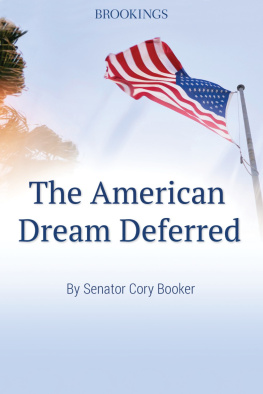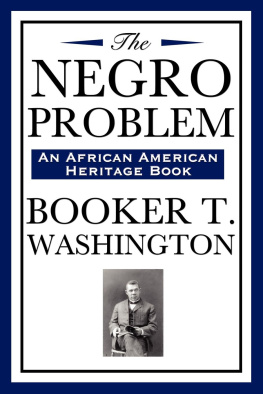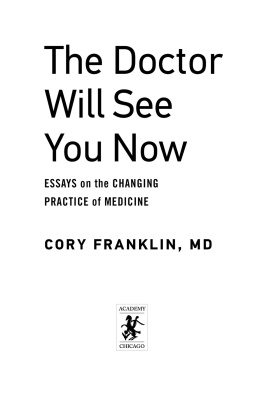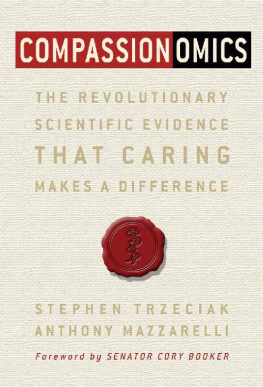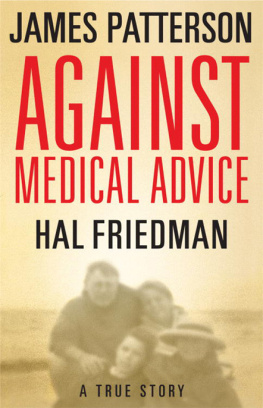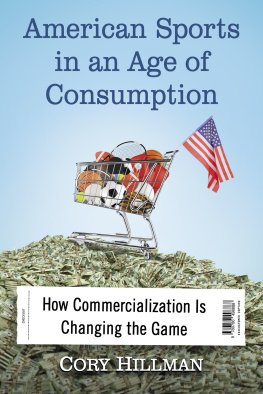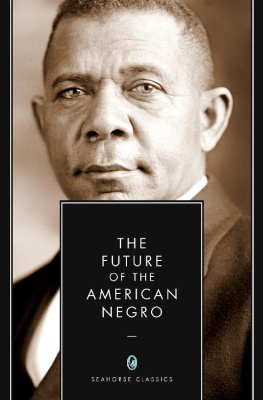My father was born in the small, segregated mountain town of Hendersonville, North Carolina, in 1936. Less than 100 years before his birth, enslaved black Americans were building Hendersonvilles Main Street.
The son of a single mother, my dad grew up in poverty. When his mother became too ill to raise him, his grandmother stepped in until she too was no longer able to care for him, and then a local family took him in as their own.
With no source of financial support and no tradition of college in his family, my dad never considered going to college. But members of the local community, recognizing his potential, encouraged him to go. His church even sent around a collection plate to help pay his first semesters tuition at North Carolina Central University.
Part-time jobs enabled him to work his way through school. When he graduated, he moved to Washington, D.C., where he was soon hired by IBM, becoming the companys first black salesman in the Northern Virginia area. Before long, IBM identified my dad as one of its highest achieving salespeople globally, and promoted him to a job in its offices in New York.
When he and my mom were looking to move to the New York City suburbs, real estate agents illegal racial steering policies nearly kept them from buying the house they wanted in an all-white neighborhood in New Jersey. It took a sting operation coordinated by the local Fair Housing Council, in which a white couple posed as my parents, to help break the persistent segregation in the town where I would eventually grow up.
For my dad the road to success was anything but easy. But by the time I was born, he had moved his family from poverty to the middle class within the span of a single generation.
The Broken Bargain
My dad, who died in 2013 just six days before I was elected to the United States Senate, was kind, funny, and creative. He was also talented, hardworking, and intelligent. He achieved so much because of who he was. But he made it clear to me that he was only as successful as he was because of all the help he received along the wayfrom the family who took him in, to the folks in his church who insisted that he go to college and helped him do so, to the activists from the Fair Housing Council who fought for him. At a time when corporate America was even more homogenous than it is today, his ability to get his foot in the door as a black man at IBM was made possible by the fact that the local Urban League, an advocacy organization in Washington, D.C., and others helped him, championed him, and opened that door for him.
My dads life was an exceptional testimony to the way the bargainthat if you work hard, sacrifice, and struggle, you can make itshould work. But he knew his experience was just thatexceptionaland he was anguished by our countrys inability to extend the bargain he believed in to all of her people.
In the years before he passed away, my dad expressed concern to me that the bargain that had worked for him, the one he believed in, wasnt becoming more real for more Americans, but instead moving further and further away.
In many ways, my dad was right. For millions of Americanswhite and black, men and women, Latino and Asian, straight and LGBTQ, people from every walk of life and every religionthe barriers to opportunity and success are higher than ever.
The bargainthe one my dad and millions of other hardworking Americans made with America and that America kept with themis broken.
A 50-50 Shot
Newark, New Jersey, has been my home for more than two decades. For over seven of those years, I served as the citys mayor.
When I was elected in 2006, my team and I were determined to make our city safer, more prosperous, and more successful than ever before. We prioritized public safety, and put reducing crime and violence at the center of our efforts. In 2008, our city went 43 days without a murder, the longest streak in 48 years. Four years into my administration in 2010, the city of Newark had its first calendar month without a murder since 1966.
We worked to jumpstart Newarks economy. Billions of dollars in new investments came into Newark, and these projects created jobs for local residents. For the first time in 50 years new residential high-rises broke ground downtown, for the first time in 40 years a new hotel opened in our citys downtown, and for the first time in 20 years the city had new office towers and major supermarkets being built. By the 2010 Census, Newarks population had grown instead of shrunk for the first time in 60 years.
We recognized that Newark would never fulfill its potential as a city without activating the potential of its residents, so we pioneered innovative education solutions, a city parks and public space expansion, workforce and training programs, and reentry initiatives for residents returning from prison.
Along the way we addressed a major budget shortfall and made it through the worst economic crisis since the Great Depression. Our goal at each step was to reimagine our city so that opportunity, safety, and security could be a birthright for all of our residents.
The Central Ward of Newark is my home to this day, and I am deeply proud to see the incredible work that continues in my neighborhood and my city, with its rich history and inspiring people. But when I come home after a week working in Washington, I am immediately struck by the urgency of the challenges we continue to face, and the work that remains.
Even as the dawn of the Great Recession recedes, the median annual income in my neighborhood, according to the last Census, was less than $14,000. To put that in perspective, average annual rent plus utilities for a 650-square-foot, one-bedroom apartment in Newark is $12,000 a year. Throw in groceries, transportation to and from work, childcare, medical care, and other basic necessities, and you can imagine how hard it is for a typical family in my neighborhood to get by.
Much like my dad, my neighbors are hardworking, committed, and intelligent. They want the best for their families and they put in long hours, sometimes at multiple jobs, in search of a better life. They are people like Natasha Laurel.
I first met Natasha in 2014 at the IHOP on Bergen Street in downtown Newark. It was the morning of Election Day and I was on the ballot. I was anxious, excitedand hungry. A few members of my staff and I sat down at a booth, and Natasha introduced herself as our server. Over the course of our meal, I learned a lot about Natasha. A proud mother of three boys, she was raising them on her own, and she dreamed of one day becoming a counselor, a job where she could do what she loved: helping people in need, advising and empowering them.
Natasha also told us how challenging it was to balance her work and family life, all while juggling her bills on a servers minimum wage income of $2.13 an hour, plus tips. Her take-home pay was unpredictable, fluctuating depending on what shifts she worked and how busy the restaurant was. Each month she tried to set aside money for the things her sons needed, like wireless internet access so they could do their homework, and clothes that could keep up with their growing bodies. But even though Natasha worked full time, she and her sons lived precariously on the edge, relying on food stamps to put dinner on the table. Meanwhile, like millions of other Americans, Natasha didnt have paid family leave to care for her son who was regularly hospitalized for asthma. So, she was forced to take on the added stress of paying her bills and caring for her child.

